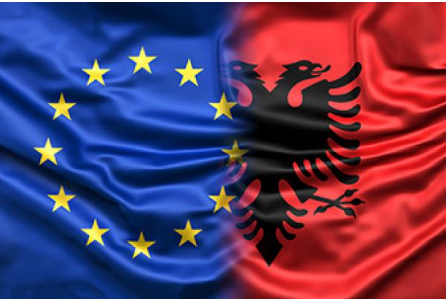Amid the routine language of progress and partnership, a deeper strategic shift is
quietly unfolding in the corridors of the European Union. Today’s FifthIntergovernmental Conference between Albania and the EU, which officially opened negotiations on the “Competitiveness and Inclusive Growth” cluster, marks more than a procedural milestone — it reveals the recalibrated tempo of EU enlargement and the increasingly sophisticated role Albania is beginning to play in the European integration matrix.
This cluster — encompassing digital transformation, taxation, economic governance, employment, research, and customs — is at once technical and political. It strikes at the structural readiness of Albania to participate in the EU’s internal market, not merely as a rule-follower but as a future contributor to the Union’s economic and social cohesion. The very composition of the cluster speaks volumes: it is the first test of Albania’s ability to align not only laws but long-term policies with the European model of inclusive capitalism and institutional resilience.
While officials like Minister Igli Hasani celebrated the opening of eight negotiation
chapters as “a cornerstone” of Albania’s integration journey, the subtext of the moment is more complex. In Brussels, enthusiasm is tempered by pragmatism.
The European Commission’s decision to tie this cluster to concrete closure benchmarks indicates a dual strategy: reward momentum, but institutionalize scrutiny. The framing of today’s opening as part of a broader Albanian ambition to complete all negotiation clusters by 2025 and secure full EU membership by 2030 presents a compelling narrative — but it also lays bare the intensifying pressure on Tirana. To translate this ambition into credibility, Albania must now demonstrate durable reform not only in alignment with the acquis communautaire, but in the creation of a domestic political culture that withstands both populist temptation and institutional inertia.
Moreover, this development must be read within a larger European context. Enlargement, once treated as a geopolitical promise, is now being reengineered into a form of conditional convergence — not only aligning countries with the EU but recalibrating the EU itself to absorb them without internal destabilization. Albania’s progress is thus less a bilateral affair and more a litmus test for the EU’s own capacity to expand amid growing fragmentation and global competition.
The choice to open this particular cluster now is not accidental. In times of economic volatility and geopolitical flux, the EU is looking for partners who can offer predictability, labor mobility, industrial compatibility, and digital preparedness.
Albania’s path — if sustained — may allow Brussels to present a model of success in the Western Balkans, an area where credibility gaps have historically been as wide as the political ambitions.
In essence, this conference may seem technocratic, but it is layered with strategic
meaning. Albania is being offered a place at the table — not only as a recipient of
norms but as a co-author of a new chapter in Europe’s unfinished story. The burden of proof now lies in Tirana — but also, subtly, in Brussels.
Written by our correspondent A.T.



